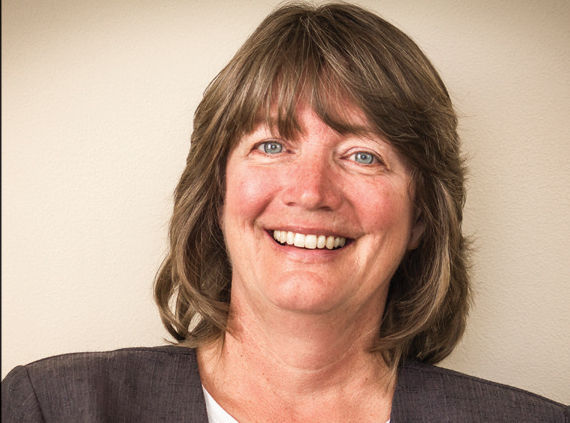Grand County officials are pushing back against an anti-tax watchdog’s claims that a proposed tax increase on the November ballot would have a significant impact on local residents.
The Grand County Council voted 4-2 on Tuesday, Sept. 15, to place a “factual rebuttal” in voters’ pamphlets against an opposition argument which claims that Proposition 1 would “scrape” $277,000 out of county residents’ checkbooks every year. Rory Paxman and Lynn Jackson voted against Jaylyn Hawks’ motion, and Elizabeth Tubbs was absent from the meeting.
Hawks said she wants the rebuttal to make it clear that visitors would pay the bulk of the tax, which would be imposed on everything but food, if approved.
“As a voter reading the voter information pamphlet, I think it would be important for me to know that the burden would be pushed further to the visitor side than the local side,” Hawks said. “That might influence me to make a different decision than I would have otherwise made, had I just read the opposing argument.”
As Jackson heard it, though, the rebuttal sounds like it “almost tries” to dismiss the fact that county residents would be affected by the tax increase.
“Even though the bulk of it’s going to come from visitors, county residents still are going to have a tax to pay; a new tax,” he said. “So I don’t see the need.”
Utah House Bill 362 gave the state’s counties the authority to enact the tax, which would raise 25 cents for every $100 in sales, subject to voter approval.
If a majority of Grand County voters support Proposition 1, the tax is projected to raise an extra $776,562 per year for local transportation projects. Ten cents of every $100 would be divided between the City of Moab, the Town of Castle Valley and unincorporated county areas, while 15 cents of every $100 would go to Grand County.
The three local government entities currently face a combined transportation funding shortfall of more than $2.23 million, and Moab Mayor Dave Sakrison told the Moab Sun News that the additional funding would be a boon to them. Sakrison has noted that the funding could be spent on not just pavement and asphalt, but on sidewalks, trails and any other kind of transportation-related project.
A statement against the tax that will appear in voters’ pamphlets says the increase might not sound like much, but when it’s combined with two recent state tax hikes, it would only hurt lower-income and middle class families.
The argument, which Moab resident Dave Cozzens submitted on behalf of Americans for Prosperity Utah Director Evelyn Everton, says that the increase would cost the average family of four $120 per year.
Although the local option sales tax would only add a few cents to most purchases of non-food items, the opposition statement says that amount would quickly add up. Over time, it says, the increase would fall hardest on those who can least afford it.
“This could mean the difference between a week or more worth of groceries for many families,” the statement says.
The statement is virtually identical to ones that Everton tried to submit in other Utah counties, and both Hawks and Grand County Council vice chair Chris Baird suggested that it does not apply to tourism-driven Grand County.
“When you’re talking about over a million visitors a year … (the tax) is disproportionately pushed to them,” Hawks said.
“The only issue with this, besides the information being wrong, is that it makes it seem like the entire collection of this tax is going to come from Grand County residents, when in fact, a great proportion of it will come from tourists,” Baird said.
The county’s rebuttal says that the state’s gas tax does not adequately cover the costs of maintaining local roads. To make up for the loss, Baird said, the county diverts about $300,000 in property taxes every year into its class B road fund.
“And so obviously, this would relieve that burden on the property taxes, which means in the long run, we’ll be able to push a property tax increase out much further,” Baird said.
Jackson said he believes the council was right to send the question on to voters. But he wondered whether council members should wade further into the debate over the pros and cons of Proposition 1.
“I think we put out factual information … and there was a rebuttal with some incorrect information on numbers, but what I got from the ‘con’ argument is it’s mostly an opposition to taxes in general,” he said. “And so I don’t know what purpose that serves for us to just do a rebuttal to that. What are we going to say? ‘The numbers are right, and we as a council love new taxes?’ I don’t know.”
Paxman questioned whether the council could formulate a neutral-sounding response to the argument against Proposition 1.
“Is there a way that we could word it that doesn’t put it to where it sounds like the county’s pushing one way or the other?” he asked.
Hawks said she wished that someone else submitted a statement in support of the increase, but alas, she said, that didn’t happen.
“I think it’s unfortunate that the first argument couldn’t have been put forward by some ambitious person who really favored the tax and put that on there,” she said.
As a voter reading the voter information pamphlet, I think it would be important for me to know that the burden would be pushed further to the visitor side than the local side.
Council splits 4-2 in favor of rebuttal to anti-tax argument on ballot




